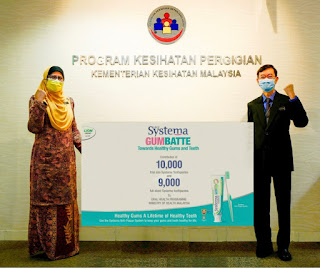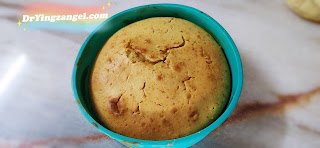Protein is essential not only for building and maintaining muscle; but
also bone strength and other body functions. Muscles grow larger and
stronger from birth to about 30 years of age. Subsequently, many begin
to lose muscle mass and function called age-related sarcopenia.
Sedentary people can lose 3% to 5% of their muscle mass each decade after age 30. Those who exercise often are not exempted either. This risk is real especially when people are advised to stay at home, resulting in a drastic drop of incidental activity and way too many couch potatoes. A downward spiral renders those people weaker and deconditioned, especially the older generation who has less reserve to begin with. Therefore, do maintain at least 30minutes of moderate intensity exercise at least 3 times/week!
It goes without saying that eating well helps in maintaining a healthy weight and muscle mass. Adequate calorie and protein is even more important as we age. But many resort to a tea and biscuit diet due to changes in sense of taste, problems with the teeth, gums and swallowing, or increased difficulty shopping and cooking. To help prevent sarcopenia, 25–30 grams of protein intake each meal is recommended.
Daily recommendations from the American College of Sports Medicine and the Academy of Nutrition and Dietetics are as follows :
Recreational athletics need more- 1.1 to 1.4g
Competitive athletes need even more- 1.2 to 1.4g
Muscle builders need -1.5 to 2.0g
Ultra-endurance sport persons need the most- up to 2.0g
To put things in perspective, a 60kg person will need at least 48g protein a day. Diet sources from lean meat, fish, chicken, and dairy products are great. Vegans should consume more tofu, edamame, tempeh, seitan, chickpeas, lentils and nutritional yeast for instance. Protein sources should be varied for wholesomeness. Head to the Better Health website for more information about protein serving.
Those who cannot consume enough protein in their diet should consider using good quality protein supplements. Examples include:
-Athletes with sports injuries
-Anyone recovering from an injury
-Vegans
-Pregnant and breastfeeding mums
- Weight watchers and fitness enthusiasts
- Meal replacement
- Older adults becoming frailer with poor oral intake
- Growing yet choosy teenagers active in sports
Dynamic Nutrition’s Live Protein is a blend consisting of organic pumpkin seed protein, pea protein and prebiotics (inulin) with high bioavailability. It is plant-based with a complete amino acid profile. This product is easily digestible, gluten-free, allergen free, non-dairy, soy -free, vegan friendly, organic and Non-GMO.
Pumpkin seeds is abundant in protein, dietary fiber, amino acids and low in sodium. Advanced processing technology used in Dynamic Nutrition’s Live Protein preserves most nutrients and reduce fat content.
PISANEᵀᴹ pea protein supports muscle synthesis. Branched-Chain Amino Acids (BCAA) maintains energy level. Iron and arginine in the pea protein enhance strength, power performance and muscular recovery. PISANEᵀᴹ pea protein also promotes satiety and supports lean body mass maintenance. Arginine and lysine are essential for good bone health.
What does Dr Yingzangel think?
Dynamic Nutrition’s Live Protein is easily water soluble unlike most other plant proteins. The nutty aroma is pleasant and palatable. It is great as a wholesome breakfast or lunch on the go-- I am always trying to beat the rush hour traffic in KL!
For those who have lactose intolerance, plant protein like Dynamic Nutrition’s Live Protein can be a great protein source. Or for those who does not like meat that much (like my mom!), plant protein can be a healthy alternative. Mom prefers to add Dynamic Nutrition’s Live Protein into her coffee.
More information about Dynamic Nutrition’s Live Protein here
Website: https://www.dyna-nutrition.com/































.jpeg)